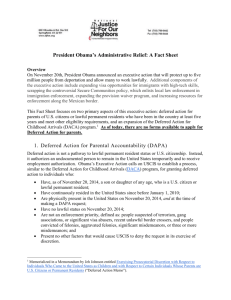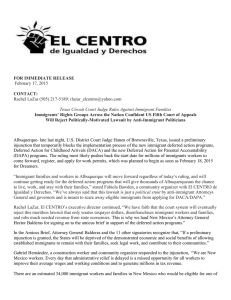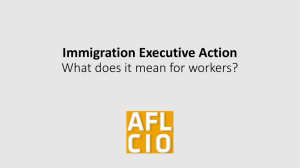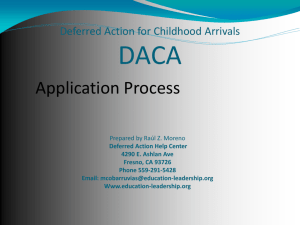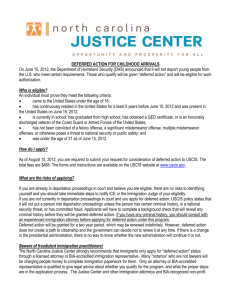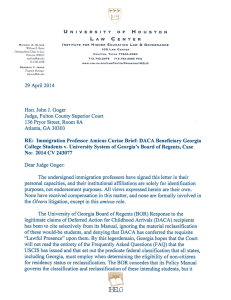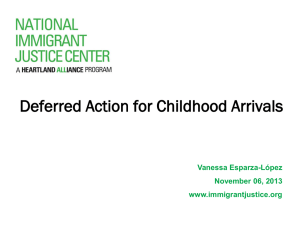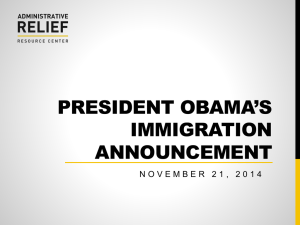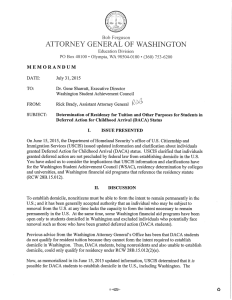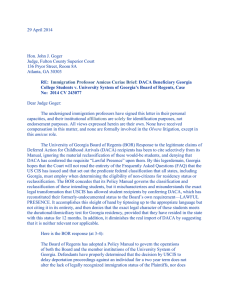Administrative Relief Summary
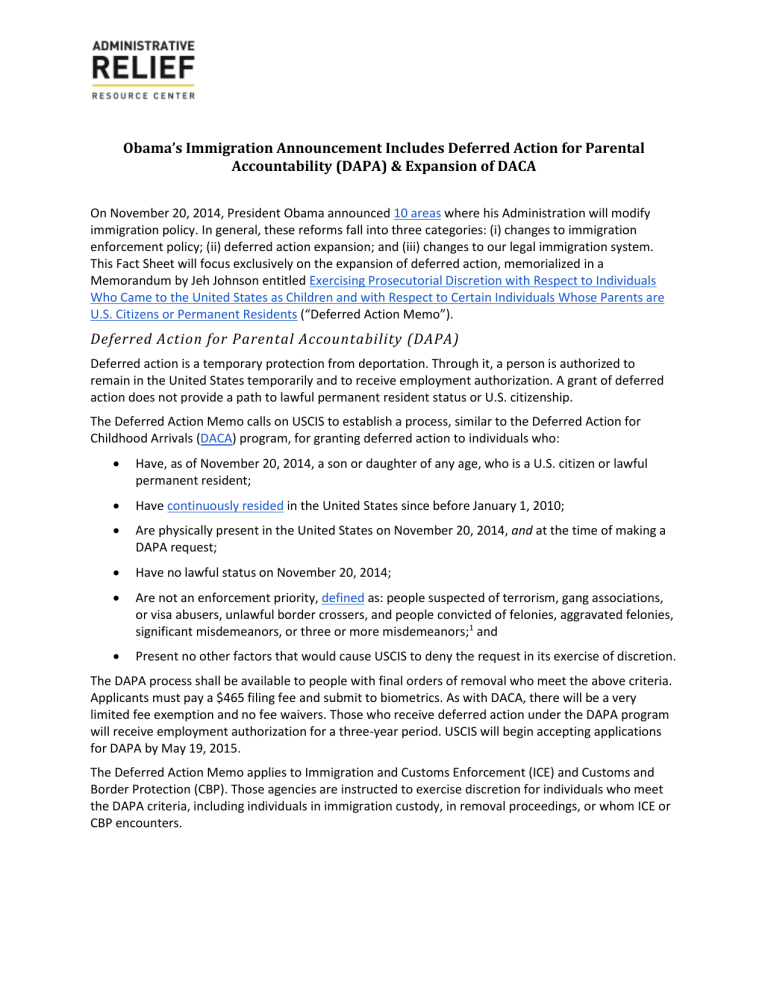
Obama’s Immigration Announcement Includes Deferred Action for Parental
Accountability (DAPA) & Expansion of DACA
On November 20, 2014, President Obama announced 10 areas where his Administration will modify immigration policy. In general, these reforms fall into three categories: (i) changes to immigration enforcement policy; (ii) deferred action expansion; and (iii) changes to our legal immigration system.
This Fact Sheet will focus exclusively on the expansion of deferred action, memorialized in a
Memorandum by Jeh Johnson entitled Exercising Prosecutorial Discretion with Respect to Individuals
Who Came to the United States as Children and with Respect to Certain Individuals Whose Parents are
U.S. Citizens or Permanent Residents (“Deferred Action Memo”).
Deferred Action for Parental Accountability (DAPA)
Deferred action is a temporary protection from deportation. Through it, a person is authorized to remain in the United States temporarily and to receive employment authorization. A grant of deferred action does not provide a path to lawful permanent resident status or U.S. citizenship.
The Deferred Action Memo calls on USCIS to establish a process, similar to the Deferred Action for
Childhood Arrivals ( DACA ) program, for granting deferred action to individuals who:
Have, as of November 20, 2014, a son or daughter of any age, who is a U.S. citizen or lawful permanent resident;
Have continuously resided in the United States since before January 1, 2010;
Are physically present in the United States on November 20, 2014, and at the time of making a
DAPA request;
Have no lawful status on November 20, 2014;
Are not an enforcement priority, defined as: people suspected of terrorism, gang associations, or visa abusers, unlawful border crossers, and people convicted of felonies, aggravated felonies, significant misdemeanors, or three or more misdemeanors; 1 and
Present no other factors that would cause USCIS to deny the request in its exercise of discretion.
The DAPA process shall be available to people with final orders of removal who meet the above criteria.
Applicants must pay a $465 filing fee and submit to biometrics. As with DACA, there will be a very limited fee exemption and no fee waivers. Those who receive deferred action under the DAPA program will receive employment authorization for a three-year period. USCIS will begin accepting applications for DAPA by May 19, 2015.
The Deferred Action Memo applies to Immigration and Customs Enforcement (ICE) and Customs and
Border Protection (CBP). Those agencies are instructed to exercise discretion for individuals who meet the DAPA criteria, including individuals in immigration custody, in removal proceedings, or whom ICE or
CBP encounters.
Expansion of DACA
The Deferred Action Memo makes three major modifications to the DACA program:
1.
It removes the age cap. The Deferred Action Memo eliminates the requirement that an individual be under the age of 31 on June 15, 2012.
2.
The start date for the continuous residence period is advanced from June 15, 2007 to January 1,
2010. At this time, to be eligible for DACA an individual must have resided in the United States continuously from January 1, 2010 up to the present.
3.
DACA grants will now last three years instead of two. Effective November 24, 2014, all first-time
DACA approvals as well as all DACA renewals shall be effective for three years instead of two.
USCIS will begin accepting applications under the new criteria by February 18, 2015.
Although the Department of Homeland Security (DHS) has released some information about these programs, we expect DHS will produce detailed explanations and instructions in the coming months.
Visit www.uscis.gov
and http://www.adminrelief.org/ for more information.
1 Immigration enforcement priorities include other categories detailed in the Jeh Johnson Memorandum entitled
“ Policies for the Apprehension, Detention, and Removal of Undocumented Immigrants ” (Nov. 20, 2014).
2
